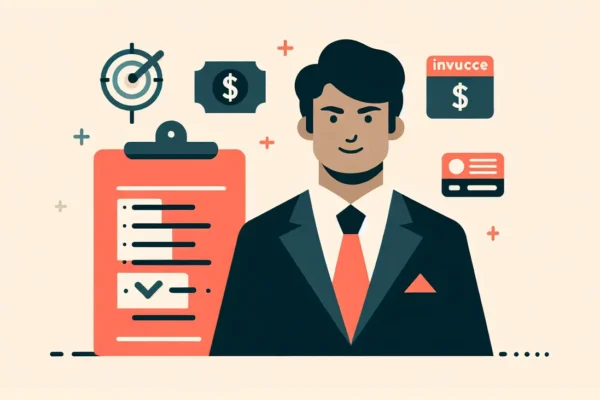In today’s cutthroat business environment, maintaining a healthy cash flow is paramount. Effective B2B debt recovery can be the linchpin for ensuring your business not only survives but thrives. Delve into the nuances of why adept debt management is a cornerstone for financial stability and business growth.
Understanding B2B Debt Recovery
At the outset, grasping the full spectrum of B2B (Business to Business) debt recovery is crucial for any enterprise. It’s a process that goes beyond mere collection; it’s about understanding the reasons that led to the debt and finding a feasible pathway for both creditor and debtor. Effective B2B debt recovery strategies maintain cash flow and preserve business relationships, striking a balance between assertiveness and diplomacy.
The often unrealised complexity of B2B transactions necessitates a nuanced approach to debt recovery. Unlike consumer collections, B2B dealings often involve larger sums and contracts that ensure a mutual understanding of payables. These elements require a more comprehensive grasp of legal remedies and frameworks, as well as proven negotiation skills to navigate successfully.
The Direct Impact of Debt Recovery on Cash Flow
Cash flow, the lifeblood of any business, critically depends on effective debt recovery mechanisms. When clients delay payments or default entirely, the repercussions ripple through the firm’s financial stability, impacting its operational capability. Timely debt recovery processes ensure that these interruptions to cash flow are minimised, allowing businesses to maintain their financial health and invest in growth opportunities.
A direct impact of proficient debt recovery is the preservation of liquidity. This ensures that businesses can cover essential operational costs such as payroll, procurement, and other necessary investments without resorting to taking on additional financial burdens or compromising their financial health.
Why Effective Debt Recovery Matters for Your Business
The significance of effective debt recovery is more than a cash flow boost. It’s a testament to a business’s financial health and operational efficiency. Establishing robust debt recovery practices signals to partners and clients alike the business’s commitment to financial discipline and integrity. This, in turn, bolsters market confidence in the business, enhancing its reputation and potential for growth.
More so, effective debt recovery influences the overall credit management strategy of a business. By prioritising efficient collections, businesses can minimise bad debt write-offs, thereby improving their creditworthiness and ability to secure financing when needed. This strategic positioning allows for agility and resilience in facing fiscal challenges.
Strategies for Successful Business Debt Recovery
Successful B2B debt recovery begins with clear communication and setting the right tone from the onset of the relationship. Establishing clear payment terms, followed by proactive invoicing and reminders, can significantly reduce payment delays. Utilising technology for invoicing and payment reminders also streamlines the process, making it efficient and less prone to human error.
Negotiation plays a crucial role in debt recovery. Offering payment plans and understanding the debtor’s situation fosters cooperation and potentially salvages a business relationship. In instances where negotiations stall, third-party intervention from debt recovery agencies or legal proceedings might become necessary. These steps, however, should be approached with caution, aiming to maintain a positive relationship with the debtor whenever possible.
Data analysis and monitoring are also vital strategies. By evaluating the payment behaviours of clients, businesses can identify potential risks early and take preemptive action. This proactive approach not only aids in averting debt-related issues but also in honing the business’s credit policies.
Mitigating Risks and Maintaining Relationships in Debt Recovery
The delicate balance between aggressive debt recovery and maintaining positive business relationships cannot be overstated. It necessitates a strategic approach that prioritises understanding the debtor’s position and working collaboratively towards a resolution. This approach maintains goodwill and often results in more favorable recovery outcomes.
Evaluating the Long-term Benefits of Effective Debt Management
The long-term benefits of an effective B2B debt recovery strategy permeate beyond immediate cash flow improvements. It leads to strong financial foundations, laying the groundwork for sustainable business growth. Consistent and fair debt management fosters a culture of reliability and creditworthiness, attracting investment, and solidifying the business’s position in its market segment.
Moreover, the discipline embedded in rigorous debt management processes enhances internal operations, promoting efficiency and vigilance in credit and financial dealings. In essence, the journey towards adept debt recovery is also a path to achieving operational excellence and financial stability.
Securing Your Bottom Line through Strategic Debt Recovery
The journey through effective B2B debt recovery is fraught with challenges yet teeming with opportunities. Embracing strategic recovery practices enhances your business’s financial health, fostering a culture of reliability and trust. In navigating these waters, remember that the ultimate goal is not just recovering what is owed, but reinforcing relationships and laying the groundwork for sustainable growth. Effective debt recovery is more than a financial necessity; it’s a strategic business imperative.







